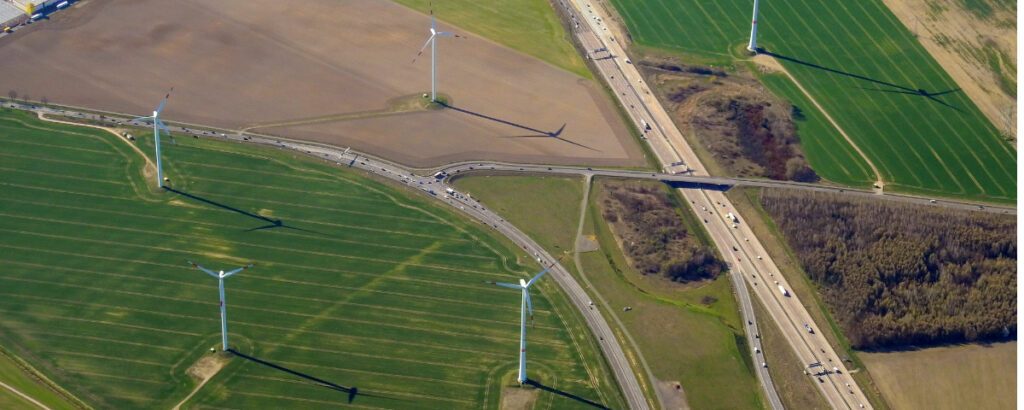Interim report on Brandenburg climate plan published – RLI shows need for action in the transport sector
March 04, 2022 | On February 27, the Brandenburg Ministry of Agriculture, Environment and Climate Protection published the interim report for the Brandenburg Climate Plan. The results show: A continuation of emission trends would miss the target of achieving climate neutrality in Brandenburg by 2045 at the latest. On behalf of the ministry, a consortium of experts led by the Institute for Ecological Economy Research (IÖW) is preparing a scientific report to provide the technical basis for the climate plan. The Reiner Lemoine Institute (RLI) is involved and responsible for the transport sector.
With the interim report, the Brandenburg Ministry presents an analysis of the state’s greenhouse gas emissions. In addition, the report includes trend analyses for future developments in the sectors of energy, industry, buildings, transport, waste and agriculture . All sectors show a stagnation in greenhouse gas emissions. The energy sector dominates total emissions with around 60 percent, followed by industry with a share of just under 15 percent, transport with around 10 percent and the building sector with around 8 percent.
Need for action in road and air traffic is great
For the transport sector, the RLI scientists identify the greatest need for action on Brandenburg’s roads. In 2020, road traffic contributed around 93 percent of transport emissions, followed by air traffic with around five percent, rail traffic with around two percent and shipping with less than 0.1 percent. The share of motorized individual transport, for example with cars, would therefore have to be significantly reduced in favor of walking and cycling as well as local public transport.
In addition, emissions from aviation are increasing significantly due to the new Berlin-Brandenburg Airport (BER). If all air traffic from the former Berlin airports Tegel (TXL) and Schönefeld (SFX) were to shift to BER at pre-Corona levels, emissions for Brandenburg would more than triple. To reduce the values, it will not be enough to rely on alternative fuels. Aircraft movements must be reduced, air traffic must be shifted to rail.
Participation of experts and the public in the climate plan
The climate plan will be developed in a broad participation process and will combine the climate-relevant aspects of already existing strategies of the federal state into a cross-sectoral, binding strategy and include a catalog of measures. In March 2022, specific workshops with experts will be launched to discuss technical issues in greater depth. At the end of March 2022, online participation will begin, involving citizens, associations and stakeholders from business, politics and society.
Press release of Brandenburg Ministry of Agriculture, Environment and Climate Protection
Complete Interim Report
Project page of Brandenburg Ministry of Agriculture, Environment and Climate Protection
RLI project page
